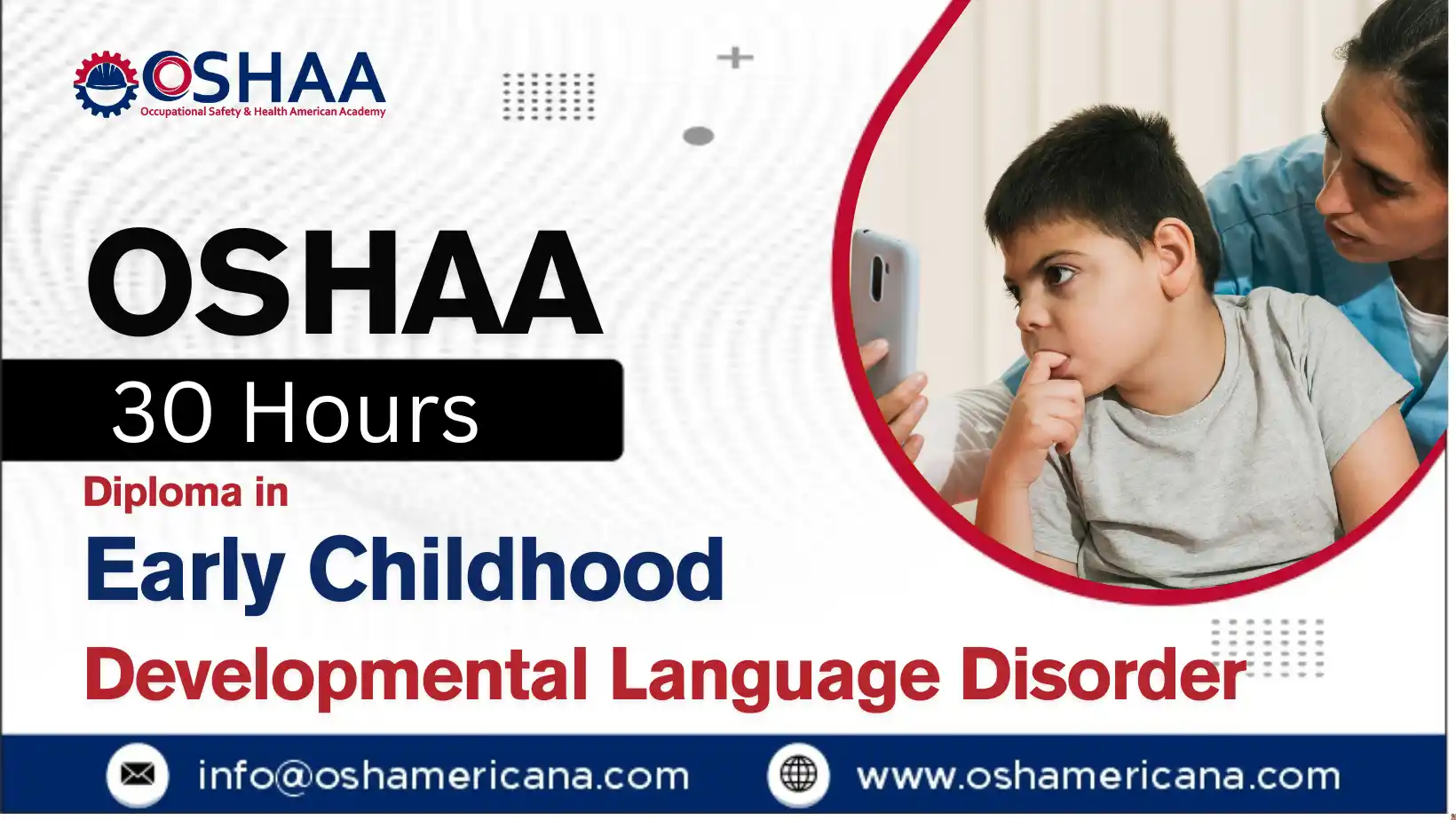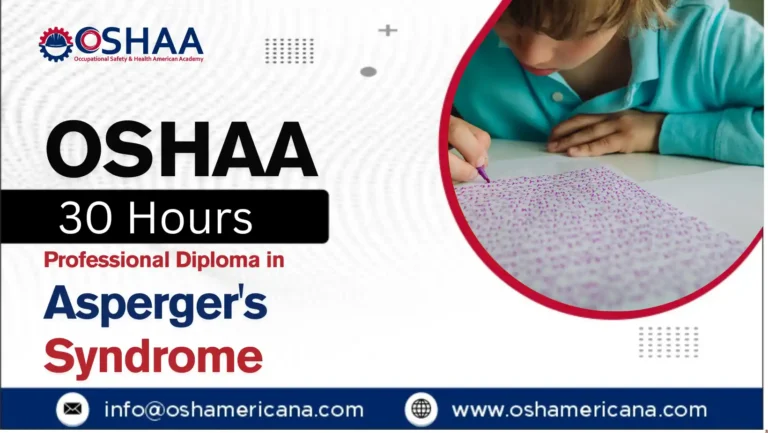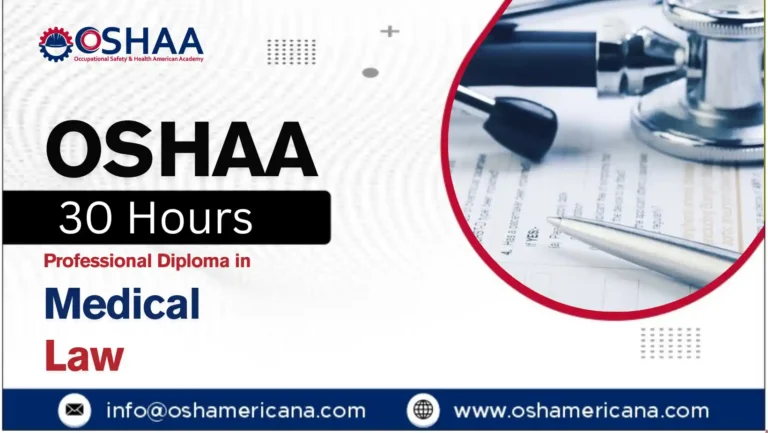Master Early Childhood Developmental Language Disorders with Diploma
The OSHAA 30-Hours Professional Diploma in Early Childhood Developmental Language Disorder is a specialised programme designed to equip participants with a comprehensive understanding of one of the most common, yet often under-recognised, developmental conditions affecting young children. This diploma offers valuable insights into the identification, support, and management of Developmental Language Disorder (DLD) during early childhood, a critical period for language acquisition and cognitive development.
DLD is a neurodevelopmental condition that affects a child’s ability to acquire language despite otherwise typical development. Through this course, participants will explore the core features of DLD, including difficulties with vocabulary, sentence structure, and conversational skills, and learn how these challenges can impact a child’s educational and social experiences. The programme is ideal for those working with children in educational, clinical, or care settings, who wish to deepen their knowledge and apply practical strategies in their roles.
The curriculum covers key areas such as speech and language milestones, the role of parents and educators, collaborative approaches to intervention, and inclusive practices that create supportive learning environments. Participants will also examine current research, case studies, and international best practices that inform early identification and responsive support strategies.
With a strong focus on practical application, the diploma empowers participants to recognise developmental concerns early, contribute effectively to multidisciplinary teams, and adapt their communication methods to support children with DLD. The skills gained through this course can enhance outcomes for children by promoting access to early intervention, which is widely recognised as a vital factor in improving language development and long-term success.
The OSHAA 30-Hours Professional Diploma in Early Childhood Developmental Language Disorder is a valuable qualification for those committed to supporting children’s communication needs. It combines theoretical foundations with practical expertise, enabling participants to make a meaningful difference in early childhood development through informed and compassionate support.
OSHAA 30-Hours Professional Diploma in Early Childhood Developmental Language Disorder
Study Units
Learning Outcomes
Introduction to Developmental Language Disorder (3 Hours)
- Understand the definition, characteristics, and classification of Developmental Language Disorder (DLD)
- Explore the prevalence and significance of DLD in early childhood development
- Distinguish DLD from other language and developmental conditions
- Recognise the long-term implications of undiagnosed or unsupported DLD
- Appreciate the importance of early awareness and intervention
Typical Language Development in Early Childhood (6 Hours)
- Identify key milestones in receptive and expressive language development
- Understand stages of speech and language acquisition from birth to age five
- Differentiate between typical variation and early signs of language delay
- Recognise the role of environment, interaction, and play in supporting language learning
- Promote strategies that encourage natural communication development
Core Features and Indicators of Developmental Language Disorder (4 Hours)
- Identify common characteristics and patterns in children with DLD
- Understand differences between expressive and receptive language difficulties
- Recognise early warning signs across different developmental stages
- Explore co-occurring conditions and their relationship to DLD
- Develop awareness of individual variation in DLD presentation
Assessment Tools and Screening Techniques for DLD (4 Hours)
- Become familiar with commonly used screening and diagnostic tools
- Understand processes for early identification and appropriate referral pathways
- Learn to interpret assessment findings to guide intervention planning
- Develop observational skills in naturalistic and structured settings
- Recognise the importance of timely assessment for better outcomes
Cognitive, Social, and Emotional Impacts of Language Difficulties (3 Hours)
- Explore the link between language development and cognitive growth
- Understand how DLD can influence emotional regulation and social interaction
- Recognise behavioural responses that may mask underlying language difficulties
- Develop strategies to support social inclusion, confidence, and self-esteem
- Promote holistic support addressing both language and emotional needs
Evidence-Based Intervention Strategies for Early Support (4 Hours)
- Learn intervention approaches grounded in current research and best practice
- Understand the importance of early, consistent, and individualized language support
- Explore strategies to enhance vocabulary, sentence structure, and conversational skills
- Adapt interventions to meet individual communication profiles
- Monitor progress and adjust strategies to optimise outcomes
Supporting Communication in Educational and Home Settings (3 Hours)
- Identify practical methods to foster language development in daily routines
- Develop inclusive communication strategies for classrooms and homes
- Learn how to create language-rich environments for children with DLD
- Support parents and caregivers in encouraging interaction and language use
- Promote continuity and consistency across home and educational settings
Collaborative Roles of Educators, Therapists, and Families (3 Hours)
- Understand the importance of a multidisciplinary approach to DLD support
- Define roles and responsibilities of educators, speech therapists, and families
- Explore methods for effective collaboration and communication across stakeholders
- Implement shared strategies consistently in home, school, and therapy settings
- Foster partnership and engagement to maximise language development outcomes
Course Benefits – OSHAA 30-Hours Professional Diploma in Early Childhood Developmental Language Disorder
- Gain a thorough understanding of Developmental Language Disorder and its impact on early childhood development
- Learn to identify early signs and core characteristics of DLD to support timely intervention
- Understand typical language development stages to differentiate between delay and disorder
- Become familiar with assessment tools and screening techniques used in early identification
- Explore the cognitive, emotional, and social effects of language difficulties on young children
- Acquire practical, evidence-based strategies to support language development in educational and home environments
- Develop the ability to work collaboratively with educators, speech and language therapists, and families
- Enhance skills in creating inclusive, language-rich environments that support all children
- Build confidence in applying early intervention techniques to promote better long-term outcomes
- Earn a recognised qualification that supports professional growth in early childhood education, speech and language support, or child development services
The OSHAA 30-Hours Professional Diploma in Early Childhood Developmental Language Disorder is designed for individuals working with or supporting young children in various educational, clinical, or care environments. This course is particularly suitable for:
- Participants involved in early years education, preschool, or childcare settings
- Individuals supporting children with speech, language, or communication needs
- Professionals in child development, paediatric care, or family support services
- Those seeking to enhance their understanding of neurodevelopmental conditions in early childhood
- Participants aiming to collaborate effectively with speech and language therapists or educational psychologists
- Anyone interested in promoting early intervention and inclusive communication practices
This diploma equips participants with the skills and knowledge needed to identify, understand, and support children with Developmental Language Disorder, fostering better developmental outcomes and improved communication confidence.







